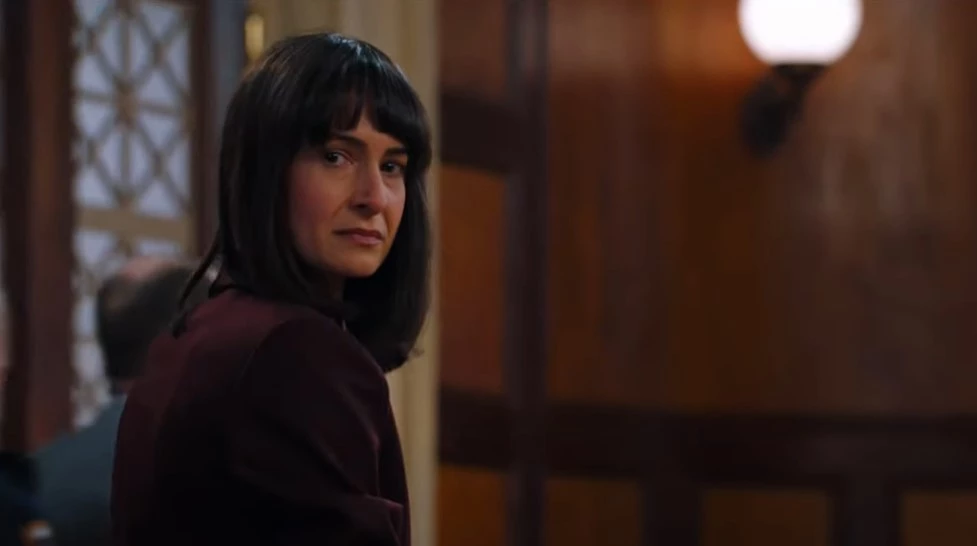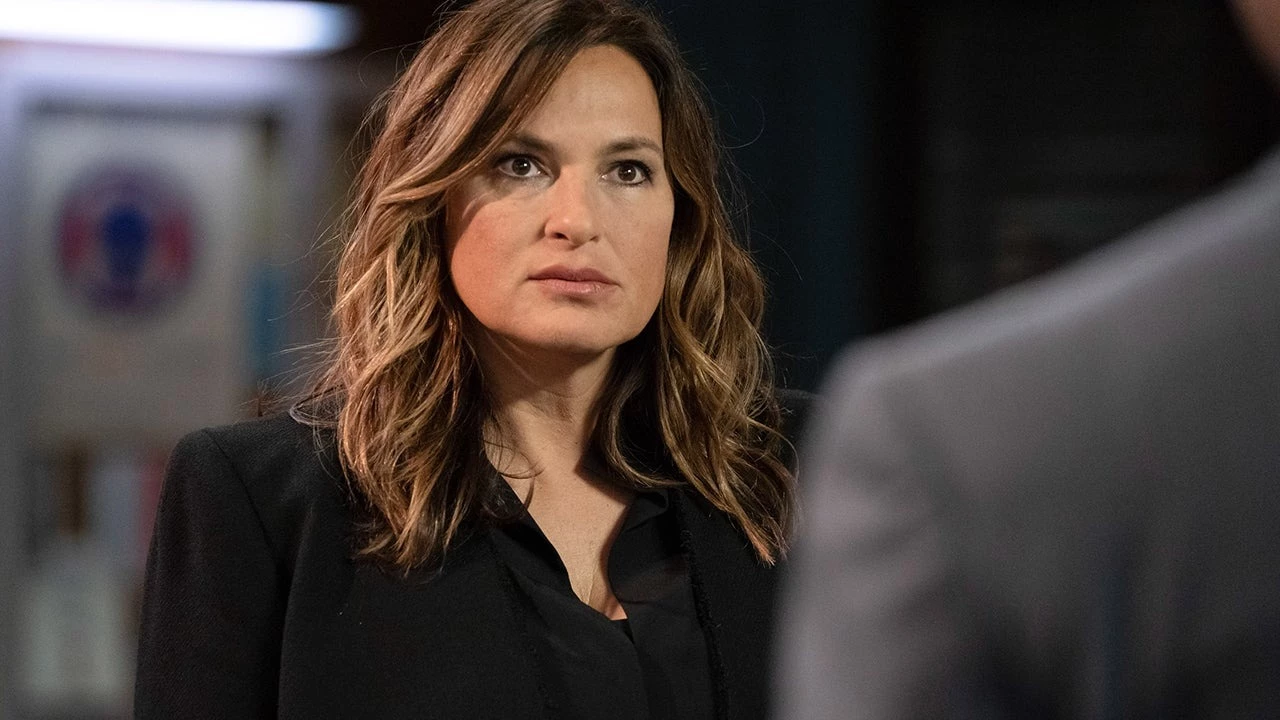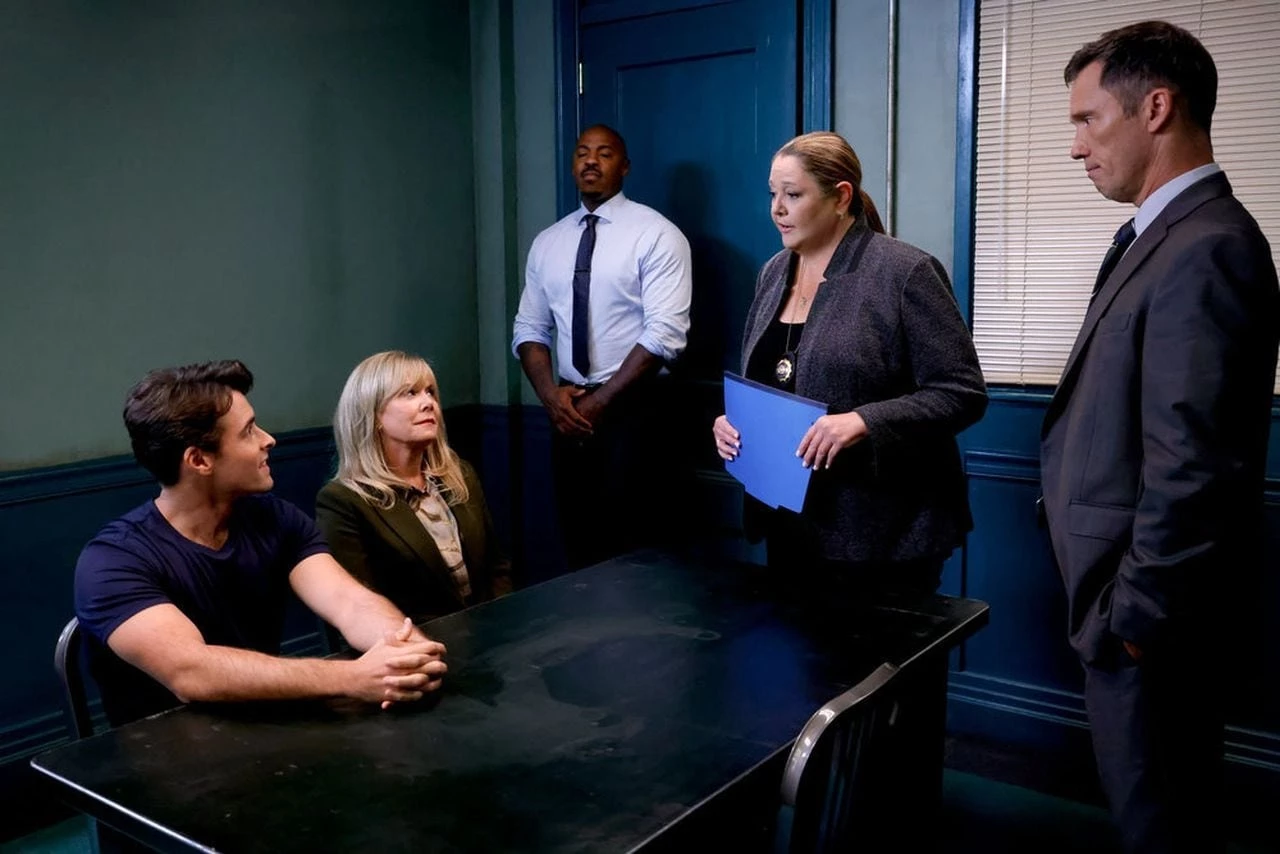Law & Order Season 22 Summary And Review
This Law & Order Season 22 Summary reveals a gripping journey that began on NBC on September 22, 2022 and concluded on May 18, 2023. This iconic American drama series presented 22 captivating episodes. A notable highlight was Mehcad Brooks joining as Detective Jalen Shaw, stepping in for Anthony Anderson who left after the 21st season. As we anticipate Season 23, let's delve into the memorable moments of Season 22.
Advertisement
A Summary Of Law & Order Season 22
Season 22 of "Law & Order" was a wild ride from start to finish, packing in a whole lot of drama and twists. Kicking off on September 22, 2022, the season introduced us to Detective Jalen Shaw, played by Mehcad Brooks, who stepped in following Anthony Anderson’s exit. This season served up 22 episodes, each one a rollercoaster of intense crime-solving action.
The season opener, "Gimme Shelter – Part Three," concluded a crossover event with "Law & Order: Organized Crime" and "Special Victims Unit." This episode had everyone on edge, with McCoy, Price, and Maroun diving deep to charge Sirenko and Rublev. Things got really intense, especially with Price and Stabler hustling to gather evidence. The episode was full of nail-biting moments, including a high-stakes shootout and a tricky situation involving the extradition of a key witness.
Other notable episodes included "Battle Lines," where Cosgrove and Shaw dug into the murky details behind a politician’s daughter's death, and "Camouflage," where the duo raced to find a subway shooter. The season also had Price facing moral dilemmas, like in "Benefit of the Doubt," where he struggled in court over an illegal search and seizure.
"Vicious Cycle," episode 6, saw Cosgrove and Shaw solving a murder with minimal evidence, and "Only the Lonely" dealt with the murder of a crisis consultant. The tension kept building throughout the season, with "The System" showcasing a hostage situation and "Land of Opportunity" uncovering a construction site cover-up.
In "Second Chance," Maroun had to put her feelings aside in court, and "Almost Famous" delved into the dark side of internet fame. The season didn't shy away from heavy topics, like in "Mammon," where a church’s money-grabbing scheme was uncovered.
Advertisement
 Source: NBC
Source: NBC
The season finale, "Open Wounds," was a landmark episode, marking Sam Waterston’s 400th episode on the show. This episode brought major drama, with a senator's murder at a wedding and a courtroom showdown involving McCoy and his daughter.
The fallout from the trial was intense. McCoy was left grappling with the consequences of his unwavering stance, reflecting on the strained relationship with his daughter, Rebecca. The case wasn't just a legal battle; it was a personal struggle, pitting his professional integrity against his role as a father.
The verdict, while legally sound, left a bitter taste. McCoy, known for his commitment to justice, seemed to question whether the rigid adherence to the law had overshadowed the human element of the case. Rebecca's anger towards him was palpable. She felt her father had chosen the law over their relationship, deepening the rift between them.
Meanwhile, Price struggled with his own demons. The case had reopened old wounds, and his reaction to the gun was a stark reminder of his traumatic experience. Maroun's reminder about his PTSD was more than just a colleague's concern; it was a wake-up call that even the most hardened lawyers are not immune to the emotional toll of their work.
The verdict also sparked a broader conversation about gun violence and mental health. McCoy's impassioned speech at the press conference resonated with the public, but the trial's outcome highlighted the complexity of addressing these issues within the legal framework. The case of Derek Quinn, a former hero turned killer, underscored the tragic consequences of untreated mental trauma and the contentious debate over gun control.
In the end, the episode served as a somber reflection on the challenges of balancing justice, empathy, and personal relationships. McCoy's professional integrity remained intact but at a significant personal cost. Price, on the other hand, emerged with a deeper understanding of his own vulnerabilities, a reminder that the scars of past traumas can resurface unexpectedly.
Advertisement
Ending Explained
 Source: NBC
Source: NBC
The Season 22 finale of "Law & Order," titled "Open Wounds," delivered a dramatic and emotional conclusion, featuring a courtroom showdown between District Attorney Jack McCoy, played by Sam Waterston, and a surprising adversary, his daughter Rebecca McCoy, portrayed by Jamie Schofield. This intense family rivalry unfolded against the backdrop of a high-profile case involving the murder of a U.S. senator at his daughter's wedding.
In this journey of an episode, Jack McCoy is determined to secure a harsh sentence for the accused, driven by his unwavering commitment to justice. However, the case takes a personal turn when his daughter emerges as the defense attorney. This unexpected twist adds a layer of complexity to McCoy's professional duties, as he now faces the challenge of navigating his legal responsibilities while dealing with familial bonds.
Throughout the trial, McCoy and his daughter engage in a fierce legal battle, showcasing their exceptional skills and deep understanding of the law. The tension in the courtroom is palpable, as both sides present compelling arguments, leaving viewers on the edge of their seats. Meanwhile, Executive Assistant District Attorney Nolan Price, played by Hugh Dancy, strives to maintain neutrality but finds himself empathizing with the defendant due to a shared traumatic experience.
The episode culminates in a verdict that resonates beyond the courtroom, highlighting the emotional toll of the case on the McCoy family. The finale showcases the series' ability to blend intense legal drama with deeply personal stories, leaving viewers with a profound understanding of the character's inner conflicts and the sacrifices they make in the pursuit of justice.
Advertisement
A Review Of The Season: Not Up To Expectations?
 Source: NBC
Source: NBC
The 22nd season of "Law & Order" has sparked a whirlwind of reactions from long-time fans. Despite introducing 22 new episodes, the season seems to have diverged from its beloved formula, leading to mixed reviews.
A significant point of contention is the handling of COVID-19. The pandemic's integration into the storyline mentioned over ten times in an episode, has left viewers feeling the show lost touch with its escapism appeal. While some appreciate the nod to reality, others find the inconsistent mask usage by principal characters during dialogues jarring. One Reddit user, Unusual_Disaster_725, criticized the approach, saying it detracted from the authenticity of the show.
Another major shift this season is Carisi's transition from detective to lawyer. Carisi, portrayed as a top-notch lawyer with limited experience, has been a point of debate. Some fans, like Reddit user SarahTy132, express disbelief at his rapid ascent, feeling it undermines the show's realism. The lack of 'whodunnit' mystery, a staple of earlier seasons, was also missed, as echoed by multiple fans.
Despite these criticisms, the season's cases were praised for their realism. Episodes 7, 8, and 9, in particular, were noted for their focus on the politics of crime and prosecution. However, this shift towards the politicization of crime, while thought-provoking, seemed to stray from the traditional Entertainment value that fans cherished.
Viewership numbers reflect this divide. While the premiere episode garnered 4.69 million viewers, subsequent episodes showed a slight decline, with episode 10 drawing 4.73 million. This fluctuation suggests that while the show retained a significant audience, it may not have fully resonated with its long-standing fan base.
At the end of the day, "Law & Order Season 22" presents a paradox. While it attempts to adapt to contemporary issues and realities, it risks alienating viewers who seek the classic intrigue and suspense that defined its earlier seasons. The season stands as a testament to the challenges long-running series face in staying relevant while honoring their legacy.
Share this article
Advertisement